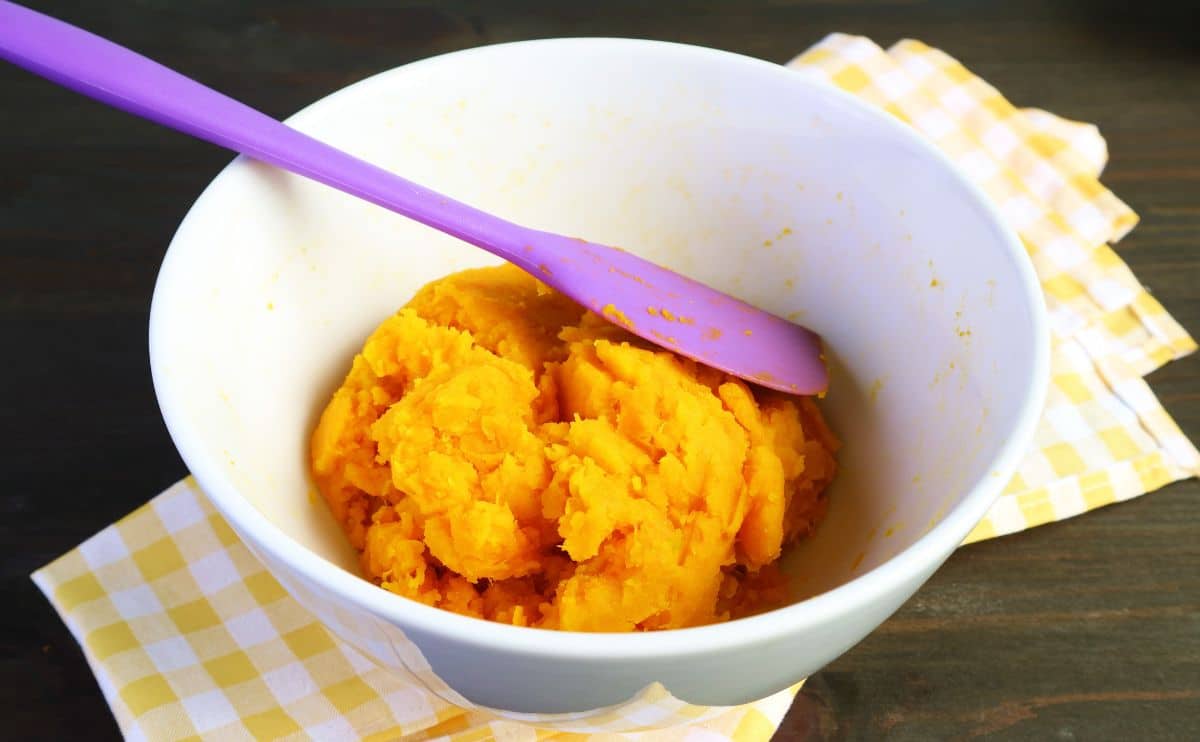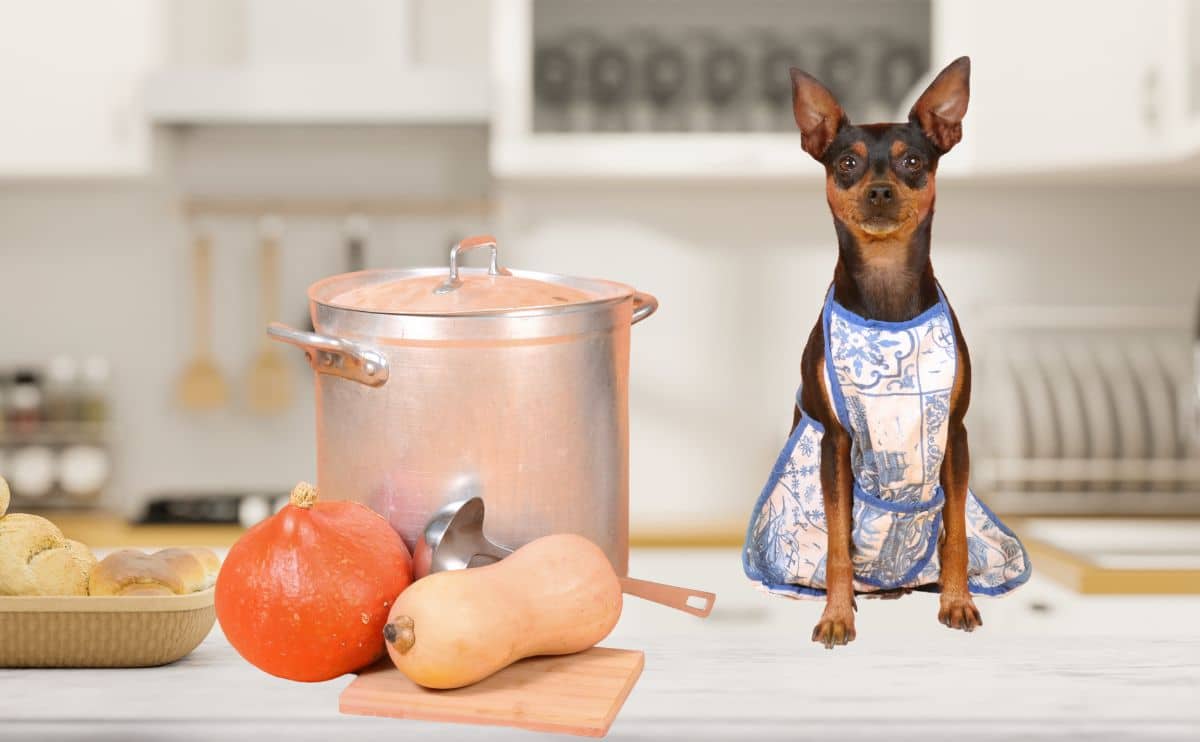Can Dogs Eat Macaroni and Cheese? They Can, But Shouldn’t!
When you purchase through links on our site, we may earn a commission. Here’s how it works.
Can dogs eat macaroni and cheese? You’ve likely landed on this page wondering if it’s safe for your pup because they accidentally ate some, or you purposely fed them table scraps. The short answer is yes, dogs “can” eat it but they probably shouldn’t. It’s not healthy for them to eat on a regular basis for many reasons.
Table of Contents
If your dog accidentally ate some, they will likely be OK. But you shouldn’t be making it a regular occurrence where you feed your pup a box of Kraft. How your furry friend reacts will depend on many factors, but most dogs will be just fine if they ingest some by accident or on a very rare occasion as a treat.
As with any type of processed foods, your pup can run into several issues if they regularly ingest human food they shouldn’t be eating. Macaroni and cheese is made with processed materials and includes wheat (gluten), which some dogs have a hard time digesting. Below we discuss what you can expect if you decide to feed your pup some table scraps from time to time. Let’s jump in!
Nutritional Value & Ingredients

Macaroni and Cheese does not have a ton of real true nutritional value for your dog. It does contain carbohydrates, protein and other nutrients so it’s not wholly without nutritional value. It’s also packed with calories, due to the addition of milk, butter and other ingredients.
Some people get upset with the fact that most boxed mac & cheese contains something called phthalates. This is a chemical compound that’s found in things like plastics, rubbers and soaps. These chemicals can be found in many foods during the manufacturing process, specifically from the powdered cheese. These compounds are known to cause cancer, which is why some people swore off eating boxed Mac & Cheese in 2017.
Wheat
Wheat is one of the primary ingredients in any boxed food that contains pasta. This means that it contains gluten, and some dogs have a gluten sensitivity. When this happens it can cause your dog to be Gassy, and potentially give them the runs. It’s recommended that you only let your pup eat Mac and Cheese on very rare occasions so that the wheat, calories and processed gluten don’t make their way into your dog’s digestive tract frequently.
Sugar
Sugar is included in the pasta, which breaks down very slowly in your dog’s GI tract. Overeating pasta will start to break down into Glucose, and when your pup doesn’t process all of it, they will start storing it as fat. This is one of the reasons we don’t recommend your pup eat it very often, as it can cause very quick weight gain. If your dog starts to put on pounds, your costs as a pet owner will likely increase as you shift to a reduced-calorie dog food.
Cheese Powder Ingredients
The cheese powder is where artificial ingredients and coloring comes into play. Inside the cheese powder, you’ll find artificial flavoring, colors and more. While this isn’t especially wonderful for humans, it’s also not great for dogs. Dogs have a hard time digesting artificial ingredients, and this can lead to sluggishness, lethargy and weight gain if they eat macaroni and cheese excessively.
Is it Safe For Dogs?

We’ve somewhat already answered this question, but yes, it’s safe but only in very small quantities. If you know your pup has wheat or gluten intolerances, then you should absolutely not feed this to your dog, or any other boxed dinners that might contain pasta. Gluten intolerance can cause your dog to have loose bowels, gassiness, skin rash or irritation and a host of other problems.
This is usually because most dogs suffer from lactose intolerance, which while bad, shouldn’t be life-threatening unless your furry companion consumes an overabundance. It’s also worth noting that most of this article is focused on the boxed version. If you have home-cooked your recipe, it’s going to likely have less processed ingredients and will be a bit safer for your pup.
How Much Can My Dog Eat?

Similar to dog food, this will depend on the dog’s size. Smaller dogs that ingest a lot of mac & cheese all at once will have a higher density in their body per pound than a large breed dog. This means that larger breed dogs will likely be able to digest it a little easier due to having a larger stomach.
That is as long as your large breed doesn’t eat an entire box. No matter the size of your pup, if your pup is showing signs of illness after ingesting something new, we recommend you contact your veterinarian as soon as possible.
How Frequently Can They Have it?

You should only feed your dog Macaroni and Cheese on very rare occasions. It’s not awful to feed it to your pup occasionally as table scraps once or twice a month. Test your dog with a small amount first, before allowing them to ingest larger quantities.
Once they’ve established that their stomach can digest it, then it becomes something that may be able to be used on a more frequent basis as a supplement to other food. Ideally, you’ll only be using it as a treat, or if some leftovers happen to fall on the floor during dinnertime.
Healthier Alternatives

There are obviously many other healthy alternatives that your dog can eat instead of eating human-grade Mac and Cheese. Some brands offer Gluten-Free recipes as well, which might be of more benefit to your dog if they have a gluten intolerance.
With all that being said, it’s much healthier to feed your dog real raw and natural food. There are a number of different nutrient-dense foods that your dog can eat instead of Mac and Cheese. Some food we recommend as treats include the following:
- Cooked or Uncooked Sweet Potatoes
- Raw or Cooked Zucchini
- Pineapple Bits or Chunks
- Raw or Cooked Bell Peppers
- Cooked Shrimp
All of the foods above are natural foods, and whether or not they are cooked or raw, will contain more nutrients, antioxidants, and vitamins than boxed Macaroni and Cheese. All five options above will be better for your pup in the long term, helping them build a healthy immune system as they grow.
[accordion]
Final Thoughts
So can dogs eat macaroni and cheese? The answer as we’ve stated is yes, they “can” eat it but they really shouldn’t. It’s not a healthy alternative for normal dry dog kibble, especially if your dog is a senior dog and is likely to gain weight.
Mac and Cheese is extremely calorie dense and likely to cause fat gain and may even start your pup down the diabetic path. While you are likely safe from any long term impacts if it’s just once a month, we recommend looking at healthier alternatives.



